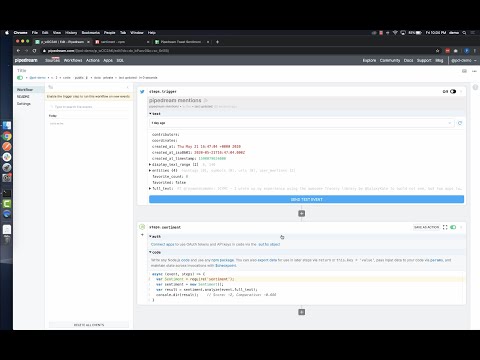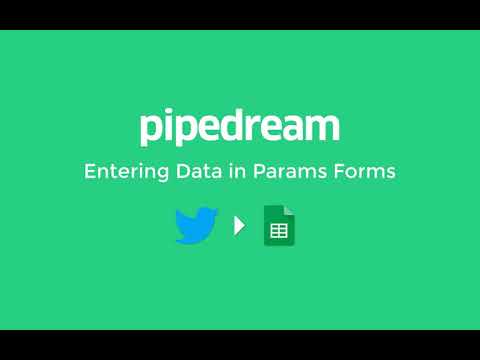What do you want to automate
with Google Sheets and Referrizer?
Prompt, edit and deploy AI agents that connect to Google Sheets, Referrizer and 3,000+ other apps in seconds.
Trusted by 1,000,000+ developers from startups to Fortune 500 companies
Popular Ways to Connect Google Sheets with Referrizer#
Popular Google Sheets and Referrizer Triggers#
Emit new event when a new loyalty reward has been created in Referrizer.
Emit new event when a new loyalty reward has been redeemed by a contact.
Emit new event each time a comment is added to a spreadsheet.
Emit new event each time a row or rows are added to the bottom of a spreadsheet.
Popular Google Sheets and Referrizer Actions#
Add a single row of data to Google Sheets. Optionally insert the row at a specific index (e.g., row 2 to insert after headers, shifting existing data down). See the documentation
Adds a new loyalty reward to the Referrizer system. See the documentation
Add multiple rows of data to a Google Sheet. See the documentation
Create a visit to an existing contact in Referrizer. See the documentation
Get all values or values from a range of cells using A1 notation. See the documentation
Overview of Google Sheets#
The Google Sheets API allows for the creation, reading, updating, and deletion of data within Google Sheets, enabling a robust platform for spreadsheet management and data manipulation. Through Pipedream, you can craft serverless workflows that respond to various triggers, such as webhook events, emails, or scheduled times, to interact with Google Sheets. This synergy can automate reporting, synchronize data across applications, manage inventory, track leads in a CRM, or even conduct survey analysis by updating and retrieving sheet data on the fly.
Connect Google Sheets#
import { axios } from "@pipedream/platform"
export default defineComponent({
props: {
google_sheets: {
type: "app",
app: "google_sheets",
}
},
async run({steps, $}) {
return await axios($, {
url: `https://www.googleapis.com/oauth2/v1/userinfo`,
headers: {
Authorization: `Bearer ${this.google_sheets.$auth.oauth_access_token}`,
},
})
},
})
Overview of Referrizer#
The Referrizer API lets you automate the engagement and tracking of your referral marketing campaigns. By integrating with Pipedream, you can stitch the Referrizer API into workflows that streamline your marketing efforts, track referrals, manage rewards, and sync customer data across multiple platforms. Pipedream’s serverless execution model allows you to focus on defining the logic without worrying about the infrastructure.
Connect Referrizer#
import { axios } from "@pipedream/platform"
export default defineComponent({
props: {
referrizer: {
type: "app",
app: "referrizer",
}
},
async run({steps, $}) {
return await axios($, {
url: `https://api.referrizer.com/v1/contacts`,
headers: {
Authorization: `Bearer ${this.referrizer.$auth.api_token}`,
"Accept": `application/json`,
},
})
},
})
Related Videos#



Community Posts#


